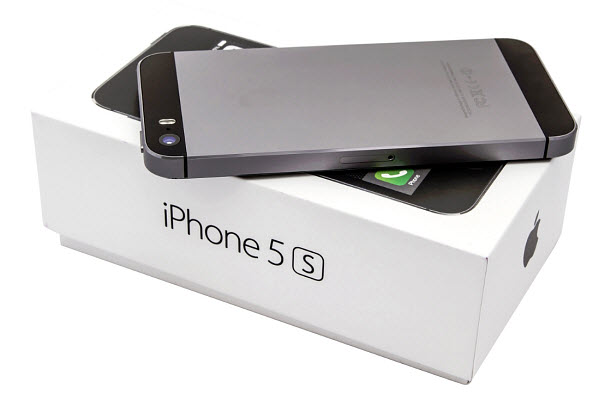Device maker partners with Visa and TranServ to launch new mobile wallet
Micromax, a developer of mobile devices, has partnered with Visa and TranServ to push mobile commerce among consumers. The company will be integrating a new mobile wallet, which will be powered by solutions designed by Visa and TranServ. The new wallet will allow consumers to use their smartphones to make payments online and in physical stores. Micromax has begun to focus heavily on mobile payments in order to ensure that its overall service strategy is beneficial for consumers.
Payments are now very important for companies in the mobile space
According to Micromax, payments have become a very important part of the mobile space. The demand for mobile payment support has grown significantly among consumers. If companies cannot offer such support, they may risk falling behind their competitors that are launching new services to consumers. Through its partnership with Visa and TranServ, Micromax believes that it will be able to provide consumers with a unique service that will be well received and capable of meeting the needs of its customers.
Mobile wallet will allow consumers to pay for products with their mobile devices
 Micromax customers using the new mobile wallet can pay for products using their mVisa cards to make payments. Currently, the majority of these transactions are likely to be made online, as relatively few retailers have invested in the technology needed to support mobile payments in physical stores. IN the future, this is likely to change due to the increasingly important role that mobile commerce is playing in the retail space.
Micromax customers using the new mobile wallet can pay for products using their mVisa cards to make payments. Currently, the majority of these transactions are likely to be made online, as relatively few retailers have invested in the technology needed to support mobile payments in physical stores. IN the future, this is likely to change due to the increasingly important role that mobile commerce is playing in the retail space.
Micromax will have to ensure the security and convenience of its mobile wallet in order to find success
The mobile wallet from Micromax may be well received among consumers if the service proves to be secure and convenient. With the aid of Visa, security may not be an issue due to the company’s tokenization technology. This replaces consumer financial information with digital tokens that can be used to authorize a payment. Ensuring that the mobile wallet is easy to use will be one of Micromax’s major priorities if it wants to find success in the mobile commerce space.
The method used for unlocking the iPhone of the San Bernardino shooter won’t work on other models.
The U.S. Justice Department recently announced that it will not cease its efforts to appeal a court ruling in the mobile security case it filed against Apple in New York, in which it wishes to force the tech giant to unlock an iPhone that was used in a drug case.
The Justice Department filed a letter in a Brooklyn, New York federal court in order to continue the appeal.
Within the letter, it stated that “the government continues to require Apple’s assistance in accessing the data that it is authorized to search by warrant.” That letter was actually filed only one day after Director James Comey of the Federal Bureau of Investigation (FBI) announced that the agency had obtained a mobile security breaking method that would make it possible for the FBI to unlock the iPhone 5c that had been used by one of the San Bernardino shooters, but it would not work on other device models such as the iPhone 5s that was involved in the New York drug case.
While Apple has stated that it could break through the mobile security of its smartphones, it has refused.
 Apple has stated that it would be able to develop the code required to unlock the smartphone in the New York case, but it has been fighting the demand put forward by the government which would require it to do so. So far, Apple has been able to keep up its defense. On February 29, a U.S. Magistrate Judge, James Orenstein, ruled that he did not have the authority to force Apple to disable the iPhone 5s security features for the purposes of the drug probe.
Apple has stated that it would be able to develop the code required to unlock the smartphone in the New York case, but it has been fighting the demand put forward by the government which would require it to do so. So far, Apple has been able to keep up its defense. On February 29, a U.S. Magistrate Judge, James Orenstein, ruled that he did not have the authority to force Apple to disable the iPhone 5s security features for the purposes of the drug probe.
The Justice Department’s letter pointed out that the application for appeal “is not moot,” as the iPhone 5s cannot be unlocked using the same technique that was used on the iPhone 5c. In this case, the mobile device belonging to Jun Feng – who has pleaded guilty to taking part in a meth ring conspiracy – and the government was hoping to be able to unlock the smartphone in order to identify other people who were involved in this methamphetamine distribution conspiracy.
Feng’s mobile device has an older operating system than the iOS 7 installed on Rizwan Farook of San Bernardino’s iPhone. This means that their mobile security encryption technology is different and the strategies to unlock them are not the same. Apple will be filing its papers in opposition to the appeal on April 15.
 Micromax customers using the new mobile wallet can pay for products using their mVisa cards to make payments. Currently, the majority of these transactions are likely to be made online, as relatively few retailers have invested in the technology needed to support mobile payments in physical stores. IN the future, this is likely to change due to the increasingly important role that mobile commerce is playing in the retail space.
Micromax customers using the new mobile wallet can pay for products using their mVisa cards to make payments. Currently, the majority of these transactions are likely to be made online, as relatively few retailers have invested in the technology needed to support mobile payments in physical stores. IN the future, this is likely to change due to the increasingly important role that mobile commerce is playing in the retail space.
 Apple has stated that it would be able to develop the code required to unlock the smartphone in the New York case, but it has been fighting the demand put forward by the government which would require it to do so. So far, Apple has been able to keep up its defense. On February 29, a U.S. Magistrate Judge, James Orenstein, ruled that he did not have the authority to force Apple to disable the iPhone 5s security features for the purposes of the drug probe.
Apple has stated that it would be able to develop the code required to unlock the smartphone in the New York case, but it has been fighting the demand put forward by the government which would require it to do so. So far, Apple has been able to keep up its defense. On February 29, a U.S. Magistrate Judge, James Orenstein, ruled that he did not have the authority to force Apple to disable the iPhone 5s security features for the purposes of the drug probe.